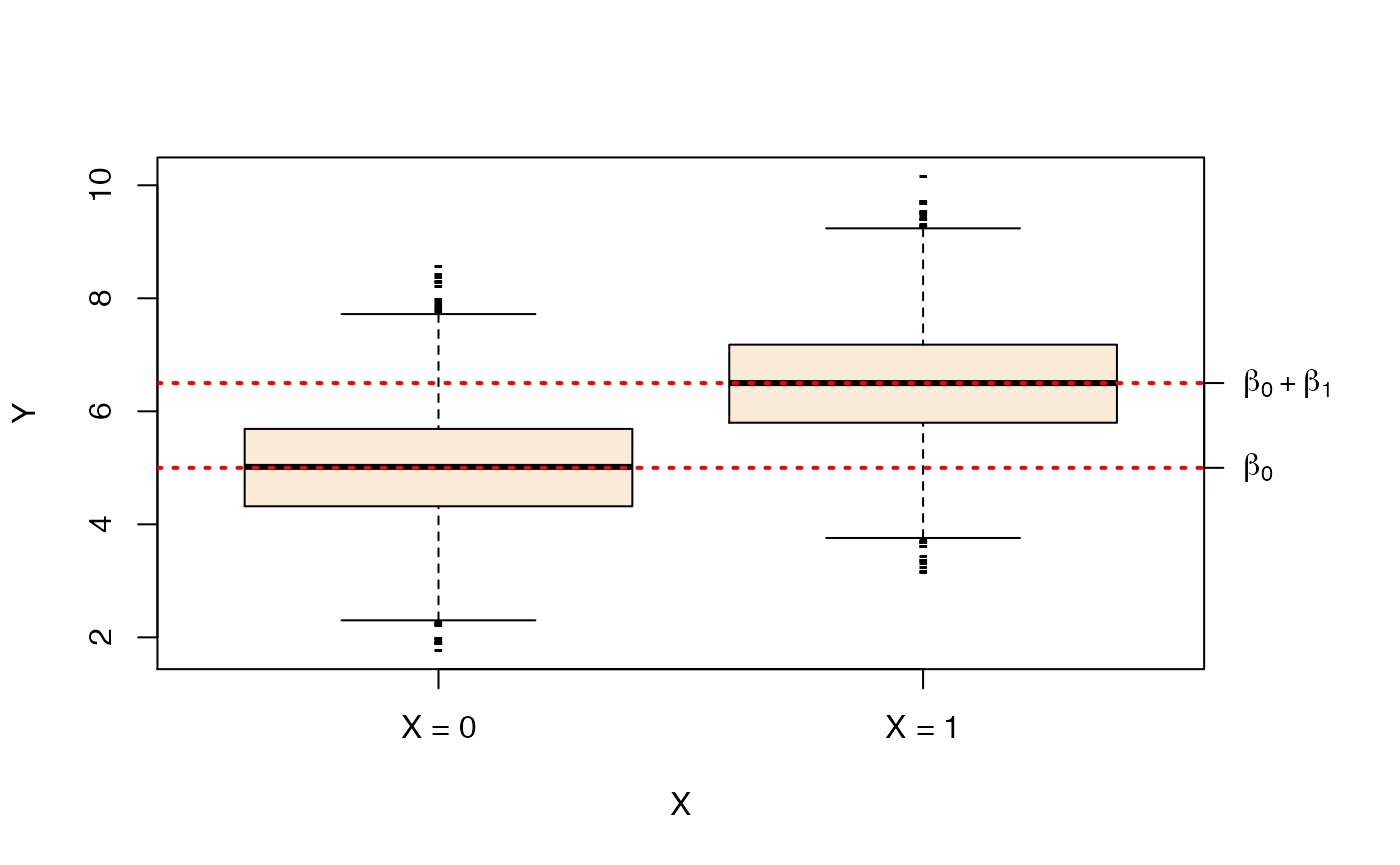Differential Analysis as Linear Regression
Stefano Monti
Source:vignettes/docs/diffanalLM.Rmd
diffanalLM.RmdThis is the code for the plot shown in slide #48 of BS831_class03_ComparativeExperimentLM.Rmd (“Differential Analysis as linear regression (LM)”).
set.seed(159) # for reproducible results
nobs <- 10000 # sample size
beta0 <- 5 # mean in class 0
beta1 <- 1.5 # beta0 + this is mean in class 1
X <- sample(0:1,nobs,replace=TRUE)
Y <- rnorm(nobs,mean=beta0 + beta1 * X,sd=1)
## or, equivalently
## Y <- beta0 + beta1 * X + rnorm(nobs,mean=0,sd=1)
par(mar=c(c(5, 4, 4, 5) + 0.1))
boxplot(Y~X,ylab="Y",pch="-",names=paste("X =",0:1),col="antiquewhite")
abline(h=c(beta0=beta0,'beta0+beta1'=beta0+beta1),col="red",lty=3,lwd=2)
## notice the use of 'expression' to display mathematical symbols
axis(side=4,at=c(beta0,beta0+beta1),labels=expression(beta[0],beta[0]+beta[1]),las=1)
We now fit a linear model to the generated data by lm.
##
## Call:
## lm(formula = Y ~ X)
##
## Residuals:
## Min 1Q Median 3Q Max
## -3.3417 -0.6872 0.0121 0.6879 3.6653
##
## Coefficients:
## Estimate Std. Error t value Pr(>|t|)
## (Intercept) 4.99939 0.01435 348.29 <2e-16 ***
## X 1.49248 0.02026 73.68 <2e-16 ***
## ---
## Signif. codes: 0 '***' 0.001 '**' 0.01 '*' 0.05 '.' 0.1 ' ' 1
##
## Residual standard error: 1.013 on 9998 degrees of freedom
## Multiple R-squared: 0.3519, Adjusted R-squared: 0.3519
## F-statistic: 5429 on 1 and 9998 DF, p-value: < 2.2e-16As you can see, the estimates are quite close to the generating parameters.